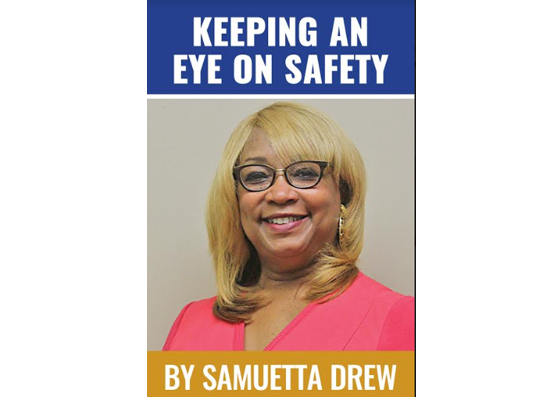By Samuetta Hill Drew
Each day the news media reports a steady increase of COVID-19 cases in the vaccinated and unvaccinated community throughout the country, especially with the onset of the Omicron variant which seemingly has spread rapidly in a majority of our 50 states.
Doctors warn the unvaccinated remain at extreme risk of a severe case of COVID-19 which could result in hospitalization, where the vaccinated citizens are protected generally from the severe cases. Many are now opting to take a chance and are getting their third booster shot if they received the Pfizer or Moderna vaccine or the second shot (Pfizer or Moderna is recommended) if they received the J & J Janssen vaccination. The scientific and medical communities have learned the initial vaccine effectiveness wanes after five to six months requiring a booster shot which is free.
The scientific and medical communities are increasing their studies to include the newest COVID-19 variant – Omicron, while still diligently researching the Delta variant along with COVID-19 in its original form. These communities are tasked with an awesome responsibility of keeping the world’s population safe. It has been stated the vaccination of children (ages 5 and older) and teens will help our country obtain “herd immunity” based upon the number of vaccinated U.S. citizens of all ages.
If you are a parent who has decided to get your child and/or teen vaccinated, here are some preparation measures and side effects to look for after the vaccination. Again, the information will primarily come from the Centers for Disease Control and Prevention (CDC) and CHOC (Children Health of Orange County), ranked one of the nation’s leading children’s hospitals for 2020-21.
The experience of getting a COVID-19 vaccine will be very similar to the experience of getting routine vaccines. Prior to your child’s vaccination you may consider the following:
- Talk to your child before the vaccination about what to expect.
- It is not recommended you give pain relievers before vaccination to try to prevent side effects.
- Tell the doctor or nurse about any allergies your child may have.
- To prevent fainting or injuries related to fainting, your child should be seated or lying down during vaccination and for 15 minutes after the vaccine is given.
- After your child’s COVID-19 vaccination, you will be asked to stay for 15-30 minutes so your child can be observed in case they have a severe allergic reaction and need immediate treatment.
The possible side effects for children and teens are similar of those for adults- pain in the shot area, along with redness and swelling. Other possible side effects are tiredness, headache, muscle pain, chills, fever, and nausea. These side effects may affect your child’s ability to do daily activities, but they should go away in a few days. Some people have no side effects and severe allergic reactions are rare. If your child experiences a severe allergic reaction after getting a COVID-19 vaccine, vaccine providers can rapidly provide care and call for emergency medical services, if required.
Ask your child’s healthcare provider for advice on using a non-aspirin pain reliever and other steps you can take at home after your child gets vaccinated. In general, aspirin is not recommended for use in children and adolescents less than 18 years of age. Placing a cool, damp cloth on the injection site may help with discomfort. These measures will assist with Keeping an Eye on Safety for your child and/or teen before and after the COVID-19 vaccine.




